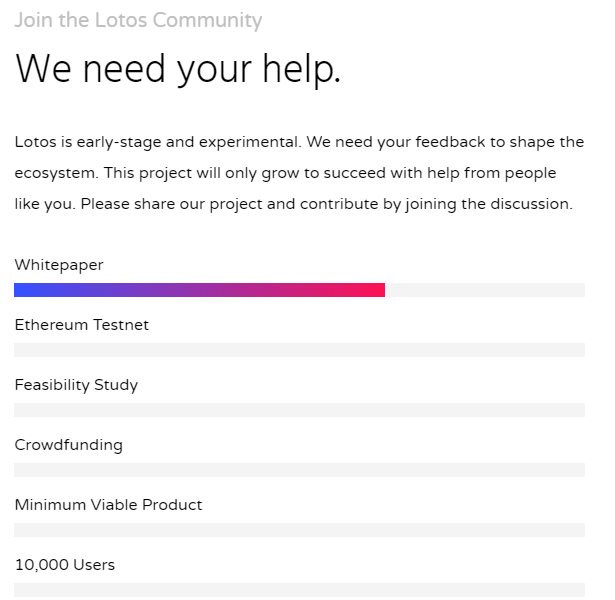Crypto as Religion: Sacred Technologies

One of the things I've enjoyed about the crypto community is the diversity of its people -- politically, economically, geographically, educationally -- the demographics of crypto are both literally and figuratively, all over the map. As with most things tech, the community could probably use more women and minority representation, but due to its globalized nature there are enough types of people interested in the subject that you won't be hurting to find someone different if you take an effort to take a look.
Of course, when I say "diverse", this also includes scammers, political extremists, money launderers, and outright criminals trying to push their wares onto you, which you have to be very careful of when exploring the worlds of crypto space. With rewards come risks, but if you're looking for a spectrum a little fuller than the sanitized environments of social media and the mainstream web, you'll find it nowhere else but in crypto.
Among the people I've met since starting my journey: someone who used to deal drugs for a living but has since started his own business since and is using crypto for savings, a CEO who converted their earnings into a deposit for their new startup venture, and a freelance writer who multiplied his net worth during the course of a couple of weeks. (Myself included.)
I also happen to know a guy who quit his job and traveled the world for a while, then got married with someone as an interracial, interfaith couple. I don't know the details of it all, but last I heard he was studying to become a priest.
Do I happen to hang around a lot of weird, crazy people? Probably. But there's something about crypto that drives people from all walks of life into a religious type of fervor, which I'd like to dig a little bit deeper into here. The most explicit example of the intersections of religion and crypto can be found in the Karmacoin (or Lotos Network) project, an Ethererum token-based project that attempts to create a "Buddhist Economy" through the use of the blockchain and cryptocurrencies.

There's something kind of strange and contradicting about incentivizing people to "do good" through economic rewards and a rigorous startup-inspired timeline (most Buddhists would probably say that virtue is its own reward) but the idea being pursued here is novel enough to be worth mentioning, I think. There was the bizarre, schizophrenia-inspired efforts of Temple OS (and its underlying language, HolyC), but among the slew of tech startups that have popped up in the last few years there hasn't been any projects with (spiritual) ambitions quite like this. What exactly is it about crypto that might inspire this kind of belief?
Sacred vs. Secular Technologies
.jpg)
In politics, people use the terms left vs. right, progressive vs. conservative to identify their beliefs and ideals; in crypto, the main divide in the community seems to be between centralization vs. decentralization. There is another age old spectrum that has gotten overlooked in recent years, however: the sacred vs. secular.
Social media is unquestionably a secular enterprise, and the cultures that emerge around them may be "diverse" but functionally similar to one another when placed on the sacred/secular spectrum. Here's why:
Secularism, being the ideology of worldly matters, have always been into particulars -- your life, your feelings, your identity, your tastes, those particular ways that you do those particular things -- all deemed important. Secular artworks are often about romantic encounters, worldly pleasures, and expressions of change happening in the world that we live in. It meshes very nicely with hyper-targeted marketing practices, customizable products and experiences, and self-expression. (And selfies...and surveillance, of course!) In the end, all of these mechanisms are designed to convince us of the following: what we do and what we say, matters.
The world of the sacred, however, isn't as nearly as "fun" -- love is only platonic, pleasures are acquired through virtue only, and given that everything we do is controlled by an higher entity/plane, most things we do as people don't actually matter all that much. (Won the spelling bee? Raised 1.5m in funding? Who cares? The Universe/God is much bigger than that.) For these reasons, the secular and sacred have always annoyed each other since the beginning of time, and will probably continue to do so for the rest of eternity.
What does "sacred" actually mean, though? Even without referencing specific religious texts, the definition of what is "sacred" can actually be very simple: there exists, in this world, things that are always true and are immune to the throes of change and degeneration of time. Sacred ideas are both eternal and timeless, since it exists in a plane beyond any one of us can control.
For crypto enthusiasts, this immutability comes from the blockchain itself, where everything we do within the network is tracked and made transparent for everyone to see. There is a sense of universality and openness in crypto that doesn't quite exist in current software culture, which provides a very strong contrast to existing practices and could become the seed for what's about to come in Web 3.0. Perhaps we can make some headway towards the "open, connected world" that was envisioned by Zuckerberg when he first started Facebook, but couldn't quite get there due to limitations in technology and political will. Breaking social boundaries and national borders, the support for cryptocurrencies is very much fueled by the idea that there exists an identity and plane of existence that goes beyond the secular forces that govern our lives on a day-to-day basis.
In software where everything and anything is usually subject to change (software culture of today is very anti-sacred in this sense), this idea of the immutable ledger may come across as strange and bewildering to a lot of technologists out there, but at the same time, could be the very thing that will revitalize startup culture in the near future since it's genuine departure from what came immediately before. The only thing that counters the relentless tides of change brought through secular forces is the eternal nature of the sacred, after all.
--
A few years ago I wrote an article about the influence of paganism in video game cultures and labelled it techno-paganism, for a lack of a better word. In gaming culture there is a subtle but very real spiritual dimension to many of its underlying narratives that often goes unrecognized and unnoticed. The fact that video games were the first to pioneer digital currency systems through MMORPGS and online casinos is not a coincidence, in other words -- games were basically the first medium to break the secular/sacred divide in the tech industry, after all.

One thing that churches don't get enough credit for, I think, is the fact that they're a lot less judgmental than the're often made out to be -- they will often help people in need, regardless if they're labeled as degenerates or criminals by society at large. (What you do and have done, after all, doesn't matter.) This is, of course, a double-edged sword because the church will also often house people who may be considered "dangerous" by both the government and general population. I imagine that crypto will end up acquiring a similar reputation for similar reasons -- people will praise it for enabling people to work towards the greater good, but also criticize it for harboring those whom society would like to see punished.
In this grand experiment, it's going to be a lot of work trying to sort out the basic questions of good vs. bad, meaningful vs. meaningless, long-term vs. the present moment -- all of those fundamental questions that won't ever get fully answered no matter how long we spend talking and thinking about them. With the blockchain at hand, however, maybe we can now talk about these things with a little more clarity, since there will always be that immutable record that we can reference no matter how good or bad things become.
As with most things crypto, what happens next is still yet to be seen. But all we know is that something will be different, and in the long run, probably better for all of us overall. We wouldn't be taking this leap of faith otherwise, after all.
Very interesting exploration of spiritual and religious concepts as they play out in the cryptosphere. This is an area that I have often contemplated as well. Thanks for sharing this! I'm following your account now. Looking forward to more like this.
Thanks! It's a weird one, for sure, but I'm glad I went through with it.
This article might be of interest to you as well -- it's gonna be a bizarre few years, no doubt.
https://motherboard.vice.com/en_us/article/ne74nw/inside-the-world-of-the-bitcoin-carnivores
Congratulations @ryangtanaka, this post is the eighth most rewarded post (based on pending payouts) in the last 12 hours written by a Dust account holder (accounts that hold between 0 and 0.01 Mega Vests). The total number of posts by Dust account holders during this period was 2446 and the total pending payments to posts in this category was $360.67. To see the full list of highest paid posts across all accounts categories, click here.
If you do not wish to receive these messages in future, please reply stop to this comment.
Congratulations @ryangtanaka! You have completed some achievement on Steemit and have been rewarded with new badge(s) :
Click on any badge to view your own Board of Honor on SteemitBoard.
For more information about SteemitBoard, click here
If you no longer want to receive notifications, reply to this comment with the word
STOP